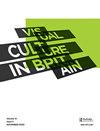Workshop: Making Beyond the Post-Medium Condition
Q2 Arts and Humanities
引用次数: 0
Abstract
Current trends within Art create tensions in educational institutions between historical forces, logistical challenges, traditional codes of practice, budgetary limitations and inherited objects. The following performative study examines the artists’ relationship to medium within this complicated environment. The material emerges from workshops carried out with students in art school spaces across Britain; conceptual workshops that consider the current status of technical workshops in this awkward territory where industrial, craft, and avant-garde modes of making overlap. Through engagement with tools found within Art institutions -some abandoned, some unfamiliar, some ubiquitous- it attempts to visualise aspects of the myriad perceptions that the current student/future artist has of the notion of medium. Referring to the condition described by Rosalind Krauss that emerged from the cross-pollination of medium-specific disciplines in Art and its education in the late 20th century, a ‘post-medium’ approach is adopted to discover new potential of tools. While acknowledging the dominant legacy of the Bauhaus, there is a questioning here of how we consider material practice, and its mastery, after conceptualism, after institutional critique, and after the tech revolution that has divorced many modes of making from material engagement. The study’s own methodology is itself under analysis; an improvised mode of making that draws on theory, performance, conversation, image and sound manipulation, appropriation, collage and documentary. It is part of a body of work that attempts to confront the future of supporting material practice in Art School beyond the Post-Medium Condition.工作坊:超越后媒介状态的制作
艺术领域的当前趋势在教育机构中造成了历史力量、后勤挑战、传统行为准则、预算限制和继承对象之间的紧张关系。以下的表演研究考察了艺术家在这种复杂的环境中与媒介的关系。这些材料来自英国各地艺术学校与学生一起举办的研讨会;概念研讨会,考虑到技术研讨会在这个工业、工艺和先锋制造模式重叠的尴尬领域的现状。通过接触艺术机构中的工具——有些被抛弃,有些不熟悉,有些无处不在——它试图将当前学生/未来艺术家对媒介概念的无数感知的各个方面可视化。参考Rosalind Krauss所描述的20世纪末艺术及其教育中特定媒介学科的交叉授粉所产生的条件,采用了“后媒介”方法来发现工具的新潜力。在承认包豪斯的主导遗产的同时,这里有一个问题,即在概念主义之后,在制度批判之后,以及在技术革命之后,我们如何看待物质实践及其掌握,这场革命使许多制造模式与物质参与相分离。该研究的方法本身正在分析之中;一种即兴创作模式,借鉴了理论、表演、对话、图像和声音处理、挪用、拼贴和纪录片。这是一系列作品的一部分,这些作品试图面对后媒介条件下艺术学校支持材料实践的未来。
本文章由计算机程序翻译,如有差异,请以英文原文为准。
求助全文
约1分钟内获得全文
求助全文
来源期刊

Visual Culture in Britain
Arts and Humanities-Visual Arts and Performing Arts
CiteScore
0.60
自引率
0.00%
发文量
1
 求助内容:
求助内容: 应助结果提醒方式:
应助结果提醒方式:


